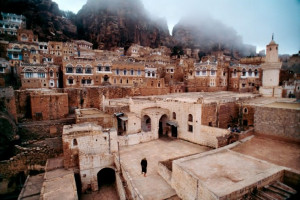
These changes would have passed unnoticed had the Yemeni Vice President and Prime Minister, Khaled Bahah, not rejected them as “illegal.” And there is good reason for doing so: the cabinet was reshuffled without his consent; the changes were apparently made to weaken his position. Some Arab mass media even called this decision an “undeclared dismissal of Khaled Bahah.” President Hadi has long being looking to settle a score with his PM favored not only by his Saudi masters, but also by many countries of the Persian Gulf, which perceive the Yemeni President as a politician with no future and a person who ultimately managed to fray relations with all political forces. In Yemen he is thought of as a Saudi puppet, who managed to throw the country into the turmoil of foreign intervention. Bahah, on the other hand, is seen as a young, energetic politician with high potential.
The UN also favours Bahah considering him a more capable politician, whose reputation has not been tarnished as severely, a person who supports national dialogue and who is perceived as a trustworthy party to the dialogue by other Yemeni political forces and, first of all, by the supporters of Houthis and former President of Yemen Ali Abdullah Saleh, currently controlling the state’s capital Sana’a and a number of provinces. President Hadi’s decision will be, therefore, assessed as a blow to the efforts of the United Nations Special Representative Ismail Ould Cheikh Ahmed, who has been working toward convening a meeting of representatives of the official government and supporters of Houthis and Saleh.
The meeting is supposed to be held somewhere around December 10. According to the information released, the implementation of Resolution 2216 of the Security Council is expected to be the first item on the meeting agenda. A full ceasefire shall be the first step toward its full implementation. It is also planned that internal Yemeni political forces will discuss the mechanism of the withdrawal of armed units and the elaboration of security measures to eliminate risks of noncompliance with obligations. Other agenda items include the surrender of heavy weaponry to the state authorities, the reestablishment of operations of state institutions to their full capacity, and the settling of issues hindering the resumption of national dialogue. The current divide of the government, however, jeopardizes these plans.
Going back to the topic of the governmental crisis it can be noted that considering the current situation in Yemen, it is not the best time for a crisis to break out. The government is splitting right at the moment when its unity is as vital as ever. It has just recently been relocated to Aden, a town in southern Yemen completely devastated by the war. The tormented population doesn’t need the maneuvering of politicians, but resolution of such vital issues as the recovery of electric power and the restoration of gas and water supply, but above all, the introduction of basic security measures. After the withdrawal of Houthi, the city remains flooded with criminals. Some city neighborhoods are controlled by al-Qaeda or ISIS, organisations that were seen as unavoidable allies in Saudi’s struggle against Houthi. But how are they going to cope with them now? Moreover, on December 2 al-Queda that has been running the show in the largest muhafazah of the country, in the city of Al Mukalla, and is currently cutting its way through to Adena, captured two cities (Jaar and Zinjibar), located 50 kilometres to the east of Aden in the province of Abyan.
Things do not look bright on the battlefront either. Though the coalition organised by Saudi Arabia has driven Houthi and supporters of A. Saleh, former President of Yemen, from Aden, it has not achieved strategic advances and got bogged down in battle for the town of Taiz. Over 6 months of Saudi airstrikes on Yemeni cities caused a high number of casualties among civilians and destroyed the country’s already backward infrastructure, but has not tamed Houthi’s spirits. Though Saudis keep deploying new forces, including Sudanese troops, to Yemen, there has not been a breakdown in the situation yet. Apparently, these forces are scarce and poorly motivated because they are fighting the war as mercenaries.
Houthis and supporters of former President Saleh are also between the rock and the hard place: they are isolated in the inland regions of the country and receive almost no assistance from the outside. The country is experiencing a humanitarian crisis. Having lost Aden, opposition is striking back in the areas where Saudis are not counteracting with confidence, namely, on the Saudi-Yemeni boarder. This is where they can gain support of related Yemeni ethnic groups dwelling in the territories that acceded to Saudi Arabia in the 1930s. Exchange of fire occurs there almost daily.
It seems right now that the conflict cannot be resolved through military operations. All parties, including the coalition organised by Saudis, must reach agreements, and the sooner it happens, the better. And if they do not, extremists and terrorists of all sorts will take advantage of the conflict and prostration of the central government, as was the case in Syria and Iraq and as is happening right now in the southern regions of Yemen.
Maxim Egorov, a political commentator on the Middle East and contributes regularly for the online magazine “New Eastern Outlook”.
